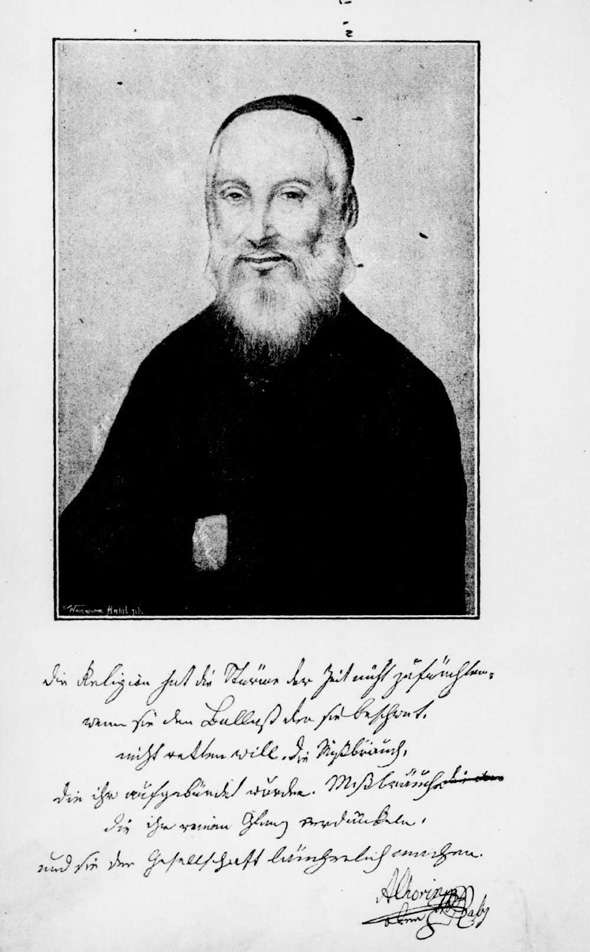
The footnote references the fifth volume of Leopold Löw's Gessamelte Schriften. In a letter dated May 3, 1863 the scholar Adolf Jellinek appended a PS concerning early Reform pioneer Rabbi Aron Chorin of Arad:


British Chief Rabbi J. H. Hertz already called attention to this passage in 1923 in a three part sermon he called "The New Paths: Whither Do They Lead?" This was originally published in the Jewish Chronicle, but also included in his collection of sermons from 1927 called Affirmations of Judaism. Below is an excerpt from pp. 177-78 combined:

As you can see, Hertz's translation of this PS reads "I have some remarkable testimony concerning Chorin's Sabbethaism. It is a question, however, whether it is expedient to go deeply into this point at present." It sure would be nice to know what this testimony was, although it may or may not be the same as Löw wrote in his own biography of Chorin (v. 2 pg. 255, as cited by Scholem). Forgive my abyssmal transcription followed by Google's comical, yet useful translation:
Einer seiner prager Schulgenossen der szegediner Rabbiner Hirsch erzahlte öfters, Chorin hatte in Prag langere Zeit in einem Hause gelebt, welches des Sabbathaismus verdachtigt wurde. Moglich, dass daselbst der erste Keim zu seiner spatern reformatorischen Richtung in seine Seele gelegt wurde; gewiss ist, dass er sich seiner Jugend dessen nicht bewusst war.Therefore this notion was not Scholem's discovery at all, although he adds some fragmentary anecdotal evidence. It is interesting to further note that Jellinek does not come off so great in this thing, while Löw seems to me quite admirable. Jellinek seems to suggest that this linkage between Sabbateanism and Reform was real, but it was not expedient to delve into it at the time (a cover-up in Hertz's interpretation). Löw (1794-1857), by contrast, includes this information in his biography of Chorin who had, by the way, given him semicha (the other semicha certificates Löw held were from Rabbis Chaim (Joachim) Deutschmann, Shi"r Rapoport and Löw Schwab; he had also been a student of R. Mordechai Banet and the Chasam Sofer.
One of his comrades of the Prague School Szeged Rabbi Hirsch told often, Chorin in Prague had a longer time lived in a house which was the Sabbathaismus Suspect. Possible that there was laid the first seeds of his later Reformation in the direction of his soul, a certainty that he is his youth which was not aware of.
Here is a nice portrait of Aron Chorin included in the 2nd volume of Löw's GS:

See as well this post from 2006 at Hirhurim, which calls attention to the bit from Scholem.
